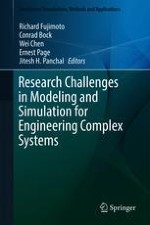This illuminating text/reference presents a review of the key aspects of the modeling and simulation (M&S) life cycle, and examines the challenges of M&S in different application areas. The authoritative work offers valuable perspectives on the future of research in M&S, and its role in engineering complex systems.
Topics and features: reviews the challenges of M&S for urban infrastructure, healthcare delivery, automated vehicle manufacturing, deep space missions, and acquisitions enterprise; outlines research issues relating to conceptual modeling, covering the development of explicit and unambiguous models, communication and decision-making, and architecture and services; considers key computational challenges in the execution of simulation models, in order to best exploit emerging computing platforms and technologies; examines efforts to understand and manage uncertainty inherent in M&S processes, and how these can be unified under a consistent theoretical and philosophical foundation; discusses the reuse of models and simulations to accelerate the simulation model development process.
This thought-provoking volume offers important insights for all researchers involved in modeling and simulation across the full spectrum of disciplines and applications, defining a common research agenda to support the entire M&S research community.
